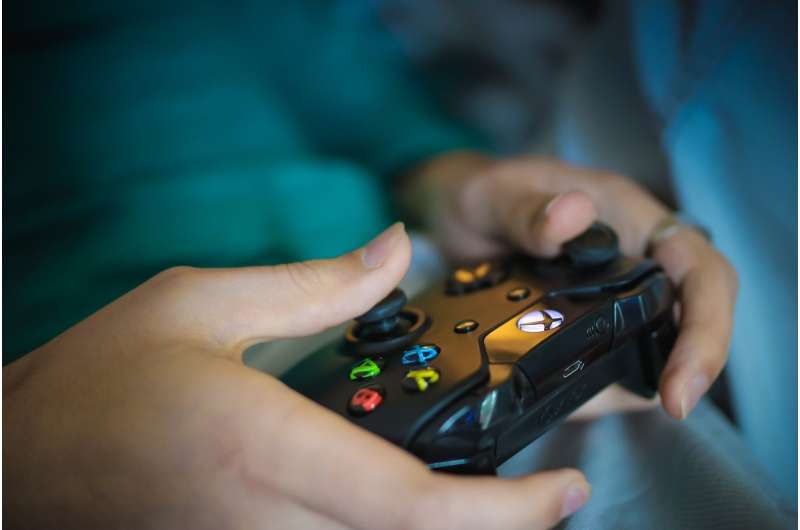Young teens should only use recreational internet and video games one hour daily

Middle-school aged children who use the internet, social media or video games recreationally for more than an hour each day during the school week have significantly lower grades and test scores, according to a study from the Center for Gambling Studies at Rutgers University-New Brunswick.
The findings appear in the journal Computers in Human Behavior.
Researchers say the findings give parents and children a moderate threshold for using entertainment-related technology—no more than one hour daily on school days and four hours a day on weekends.
"Interactive technology is widely used to promote children's educational access and achievement," said lead author Vivien (Wen Li) Anthony, an assistant professor at the School of Social Work and research associate at the Rutgers Center for Gambling Studies. "During the COVID-19 pandemic, technology has been essential to facilitating remote learning. At the same time, there is a growing concern that excessive technology use, particularly for entertainment, may adversely affect children's educational development by facilitating undesirable study habits and detracting from time spent on learning activities."
The researchers, which include Professor Lia Nower of the Rutgers Center for Gambling Studies and a researcher from Renmin University of China, analyzed the China Education Panel Survey data, a national survey of educational needs and outcomes of children in China. Approximately 10,000 first-year middle school students were surveyed and followed. Their average age was 13.5 years.
The results showed that children who used the internet, social media or video games for entertainment four or more hours daily were four times more likely to skip school than those who did not. Boys used interactive technology for entertainment significantly more than girls. Boys also performed worse and showed lower school engagement levels than girls.
"Such findings are critical, particularly in light of the recent movement toward online learning in countries throughout the world," said Anthony. "In a learning environment that integrates the internet, it is easy for children to move across educational and entertainment platforms during learning without alerting teachers or adults to alternate activities."
Anthony said children in the study who used technology in moderation (i.e., less than one hour per day on weekends) experienced less boredom at school, potentially due to the positive effects of participation in social media, video games and video streaming such as peer bonding and relationship building. Using interactive technology for entertainment in moderation advanced children's cognitive development.
The findings suggest that parents place time limits on their children's interactive technology use, and that parents and teachers should help children to develop effective time management and self-regulation skills to reduce their reliance on technology.
More information: Wen Li Anthony et al, The relationship of interactive technology use for entertainment and school performance and engagement: Evidence from a longitudinal study in a nationally representative sample of middle school students in China, Computers in Human Behavior (2021). DOI: 10.1016/j.chb.2021.106846




















